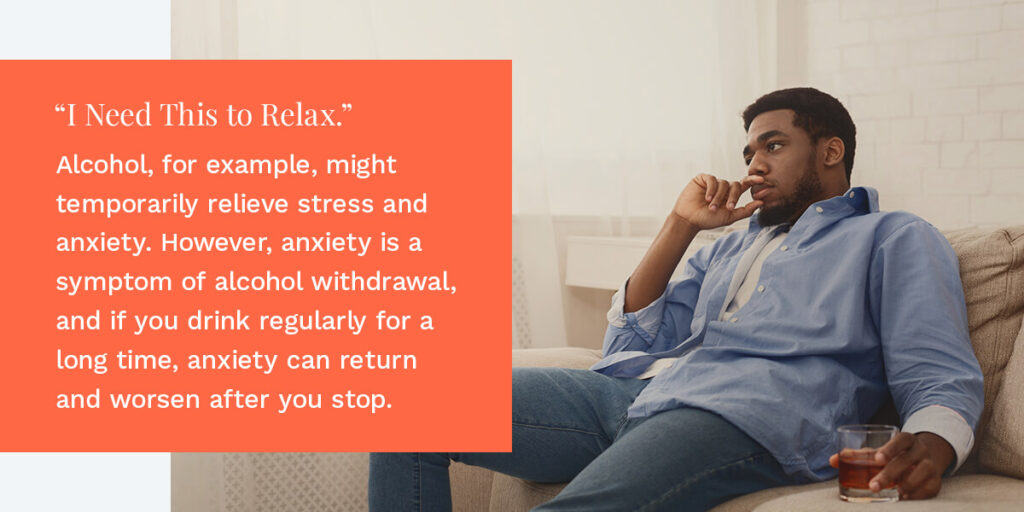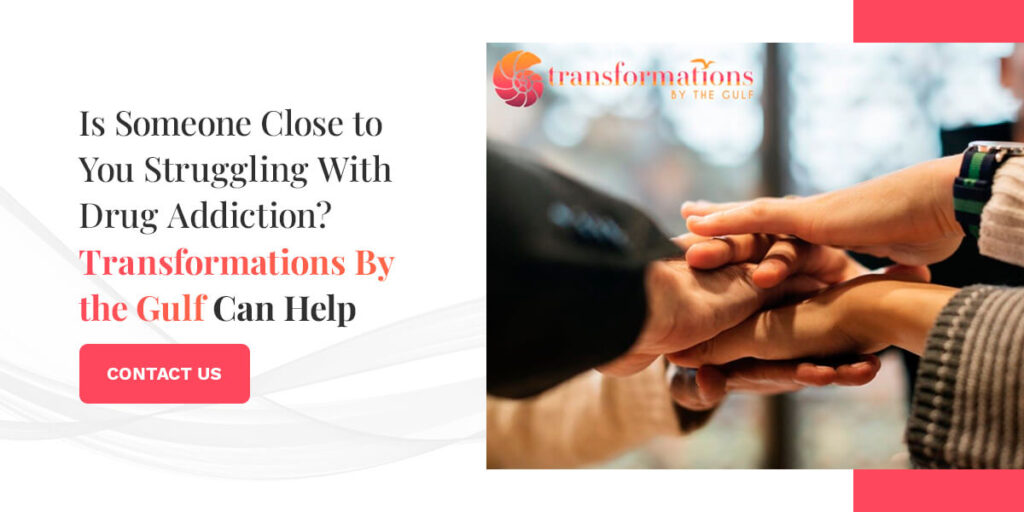5 Lies Addicts Tell Themselves
It’s common for people with substance use disorder to lie to their friends, families, bosses and, most of all, to themselves. These lies help protect themselves from the truth — that they’ve lost control of their drug addiction. Attempting to help someone with an addiction can be very challenging, and you may feel shocked to see your loved one caught in lie after lie. It helps to know that substances change a person’s brain structure and behavior.
Cravings usually take precedence over all aspects of life, causing the person to spend most of their time sustaining their substance addiction. While recovering from substance use disorder can be challenging, treatment can help. Learn about the falsehoods people with addiction tell themselves and how to get help for a loved one with substance use disorder.
1. “I Can Stop This Whenever I Want.”
If someone you know has a substance use disorder, you may recognize this specific lie. They might wish or feel it to be true that they can stop substance use whenever they want. However, they can’t stop anytime they wish unless they’ve proven they can successfully abstain from substances without cravings or withdrawal symptoms.
Lying about being able to stop taking substances is one of the most common signs of denial. Despite your loved one’s best intentions, stopping substance use has nothing to do with willpower. The body changes as it adapts to substances, shifting the balance of chemicals in the brain that causes physical cravings and withdrawal.
The mind will crave substances, and these feelings won’t go away on their own, even if your loved one tells themself they can quit. Without addressing withdrawal and the actual reasons behind their addiction in recovery, they’re still vulnerable to relapse.
2. “At Least I’m Not Like Them.”
Comparing themselves to someone they believe is worse off is one of the other significant signs of denial. It’s a standard way to justify their drug addiction and deflect criticism from themselves. They cannot compare their substance use to someone else’s, as everyone’s addiction and recovery process look different. It often just reveals that both people require professional addiction help.
In recovery, health professionals can help your loved one overcome addiction and become the best version of themselves. A big part of treatment is connecting with people who are also in recovery, which can help clients minimize those comparisons and feel humbled when they realize they are not alone in the process. They’ll learn more about the consequences addiction have on their lives and those around them and get the encouragement to make changes that benefit their life.
 3. “I Need This to Relax.”
3. “I Need This to Relax.”
The temporary relief accompanying substance use often makes people believe they need substances to relax. This couldn’t be further from the truth. Alcohol, for example, might temporarily relieve stress and anxiety. However, anxiety is a symptom of alcohol withdrawal, and if you drink regularly for a long time, anxiety can return and worsen after you stop.
Your loved one may continue taking substances to achieve the desired results, only to find themselves in a cycle of drug addiction. There are many ways people can relax without substances. Healthy stress management skills can help manage stress and anxiety long-term versus the temporary relief that substances provide.
Therapists can help with underlying conditions like depression and teach healthy coping strategies to combat addiction. Tactics might include exercise, therapeutic art, animal-assisted therapy and other recreational activities. These strategies can combat stress, anxiety and depression — making them critical for addiction recovery.
4. “This Only Affects Me.”
At times, it seems like people with an addiction live in an alternate reality. They may believe their addiction only affects themselves and no one else around them. The truth is that addiction harms everyone they love, especially those closest to them.
People with drug addiction lie because it can help create distance from themselves and the actual problem. They may be in denial of needing help since addiction can make people more likely to ignore the negative consequences of their actions. They might believe that substance use only affects themselves, though it can also result in adverse effects for those around them.
When one family member has an addiction, the entire family can be impacted by:
- Withdrawal symptoms
- Side effects of the substance
- Strained relationships
- Financial hardships
- Exposure to other substances
- Reckless behavior within the home
- Poor school performance
- Running away from home
According to studies, around one in eight children grow up in a home where a parent has a substance use disorder. Addiction can create a chaotic and unhealthy environment, causing emotional distress for the child as they witness arguments or family members fighting. Seeing addiction and surviving trauma at a young age can have long-term effects on that child, making it more likely for them to develop substance use disorders in adulthood.
Individual therapy can address trauma, and family therapy can address the impact that one’s substance use has on the family unit.
5. “I Don’t Do [Specific Action], So I’m Not Really Addicted.”
There are several other lies that people with a drug addiction may tell themselves, including trying to justify their use with specific reasons why it isn’t a problem. Examples include:
- “I don’t drink in the morning, so I don’t have alcohol use disorder.”
- “I only drink [wine or beer], so I can’t have alcohol use disorder.”
- “I’m still employed, so my substance use isn’t so bad.”
- “These are prescription medications, so taking more of them is OK.”
- “I only drink or take substances on weekends, so I can’t have an addiction.”
They might tell themselves the above lies to sustain their substance use and avoid getting help. However, it’s challenging to diagnose a substance use disorder without the help of a medical professional. Everyone is different and has different criteria, and professionals can evaluate your loved one to come up with the best course of action for their needs.
How to Know If Your Loved One Has a Drug Addiction
There are a few steps you take to determine whether your loved one has an addiction that needs to be addressed professionally:
- Note any behavioral changes: The people closest to the one with addiction will often notice side effects or personality and behavior changes if they are struggling with substance use disorder. These signs can include a lack of interest in hobbies, neglecting relationships, risk-taking tendencies, increased secrecy or abrupt weight changes.
- Long-term life changes: Severe, long-term drug addiction can result in several long-term changes, such as poor school performance, damaged relationships with family members or friends, legal troubles or job loss.
- Mental health symptoms: Substances can significantly impact existing mental health disorders or worsen symptoms. Take note of sudden mood swings, anxiety or paranoia. In severe cases, addiction can lead to thoughts of suicide. If you notice these changes in your loved one, seek medical services immediately.
- Talk to a professional: The best way to learn whether your loved one has a drug addiction is to have them speak with a health professional. They can evaluate them, point out how addiction might impact their lives and help them reach sobriety.
 Is Someone Close to You Struggling With Drug Addiction? Transformations By the Gulf Can Help
Is Someone Close to You Struggling With Drug Addiction? Transformations By the Gulf Can Help
5 Lies Addicts Tell Themselves: Addiction and denial often go hand in hand. It can be tricky to determine when a close friend or family member has a substance use disorder, though professionals can help. At Transformations By the Gulf, our highly trained team can help them discover how substances impact their life and develop a plan to help them overcome drug addiction.
At Transformations by the Gulf, they’ll gain more awareness of their specific challenges and learn how to adopt healthy coping mechanisms. Our team can help them restore balance in their life through behavioral therapy, medication-assisted treatment and holistic treatment services. To learn more about our treatment programs, contact us today.
If you or someone you know would like to know more about Transformations by the Gulf Substance Abuse Treatment Center Give us a Call 24/7 (727)498-6498
The success of a person’s recovery depends on the level of personalized treatment provided. It is important to find an addiction treatment program that works. When we say our treatment is individualized, we mean that we craft a program that is tailored to address the client’s unique physical, mental and emotional needs.
In the client’s first 24 hours with us, we’ll evaluate their current state and work to understand what challenges they need to overcome. They’ll also have an initial session with our doctor and meet with one of our licensed mental health professionals.
After the initial evaluations, we’ll design a treatment plan with the sole mission of helping the client overcome and heal from addiction. Their program will focus on things such as:
- Addressing and Identifying root causes of addiction.
- Creating a support system.
- Developing healthy stress management techniques.
- Eliminating Substance use.
- Learning how to communicate emotions effectively.
- Maintaining a healthier lifestyle.
- Repairing damaged relationships.
Our Facility is near the beach and offers a comfortable setting for substance abuse treatment and recovery.
What a Day is Like in Our Treatment Facility.
Why Transformations by the Gulf?
 3. “I Need This to Relax.”
3. “I Need This to Relax.”